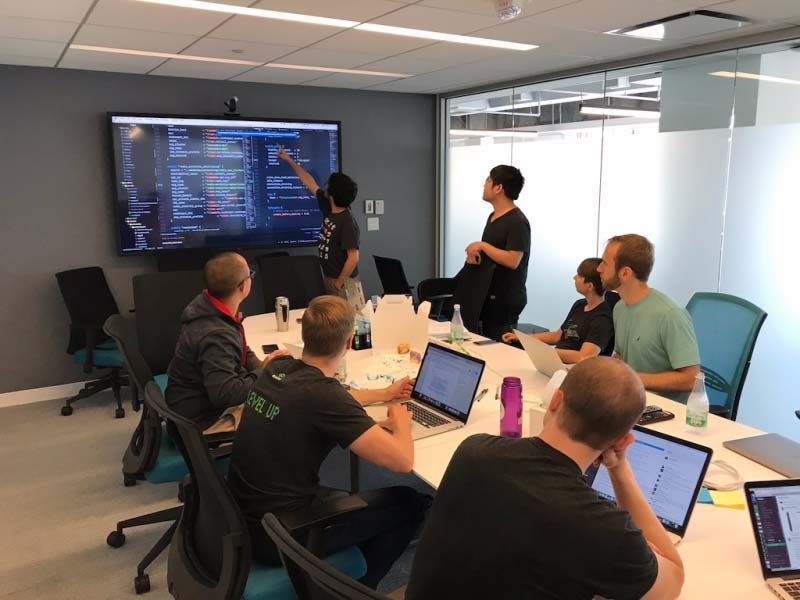The Ways to Learn Python in Right Way

The Ways to Learn Python in Right Way
Python is an important programming language for any developer to know. Many programmers use this language to build websites, create study algorithms and perform other important tasks. Study Python in five steps when utilizing the program through the Data Stast. Most tutorials assume that all python syntax should be known before you can do something interesting. This simply leads to the months spent on syntax. Do you really want to do, analyze data, or create a website or create a self-governing dragon? This will cause your incentive, and hate all the things.
What motivates you to learn python?
Before you start diving before learning Python Online, it will ask you why you want to learn. This is a long and sometimes painful journey. You probably will not do it without enough inspiration. What motivates you will help you find the last goal and the way you do not feel bored. When you are ready to learn the Python, you will not want to find the right projects for a common project you want.
Select an area of interest to you:
- Data Science / Machine Learning
- Mobile apps
- Websites
- Games
- Hardware / sensors / robots
- Scripts for automating your work
Learn the Basic Syntax
Unfortunately, this step cannot be avoided. You need to learn about a Python syntax based location. Since you're not very motivated, you want to spend less time at this time.
Here are some good sources to help you understand the basics:
- Codeacademy - doing a good job of teaching basic syntax.
- Learn python hard way - a book that teaches more deep programming about Python concepts based on Python concepts.
- Python Programming: The Start-Up Course - Data for easy learning of python and data sciences. The Python syntax database teaches in the context of data science learning. For example, you can study for loop while analyzing weather information.
- Python Tutorial - Tutorial on the Main Python Site.
Build structured projects
Once you understand the basic syntax, your own initiatives begin to begin. The project is a great way to learn because they allow you to apply your knowledge. If you do not apply your knowledge, it's hard to keep it. Projects will strengthen your abilities, learn new things, and create a portfolio to show potential employers. However, projects with a very free structure at this time can be painful - you have a lot of conflicts and the documentation needs to be referenced. For this reason, it is good to create more structured projects, until your own plans are complete enough. Many learning resources offer structural projects, and these projects allow you to create interesting things in areas that interest you.
Let’s look at some good resources for structured projects in each area:
Data science / Machine learning- Dataquest - You teach python and information science. You analyze the analysis of interesting datasets from the CIA documents to NBA player statistics. You gradually build complex algorithms, including neural networks, decision trees.
- Python for Data Analysis- the author of the Python Data Analysis Library Python Data Analysis, is a good introduction to data collection in the Python. Mobile apps
- Flask Tutorial - Flasks is a popular web frame for the devil. This is an introduction tutorial.
- Bottle Tutorial - Shaping is another web framework in Python. This is how to get started.
- StackOverflow - is a community question and responsibility site for people discussing programming issues. You can find python-specific questions here.
- The most commonly used tool for each experienced programmer. Trying to fix errors is very useful. Here's an example.
- Python Documentation - A good place to find references material in python.
- State election voting is a map.
- An algorithm that predicts the weather you live in.
- A device that predicts the stock market.
- An algorithm that automatically collects news articles.
- An app to see how far you are traveling every day.
- An app that sends you weather notifications.
- A live location-based chat.
- A site that helps you plan your weekly food.
- A site that allows users to review video games.
- A notification platform.
- Teach the novelist how to create a project you have made.
- Can you scan your device? Can this be done with more data or can you handle more traffic?
- Can your program run faster?
- Can more people utilize your device?
- Do you monetize what you did?
Kivy Guide - Kivy is a tool that allows you to create mobile applications using the pi. There is a guide on how to get started.
WebsitesWork on Projects on Your Own
When you are completing some structured projects, it's time to continue working on your own plans for Python. You will still be learning resources and advice, but you will be working on the things you want to do. Before working on your own projects, you may want to interrupt errors and problems with your programs. Here are some resources you should know:
Keep working on harder projects
Increase the difficulty and the possibility of your projects. If you are completely satisfied with building up, it's time to try harder.
Here are some ideas:
Going forward
At the end of the day, Python always grows up. There are only some people who claim to fully understand the language, they created it. You need to study continuously and work on projects. If you do this, you should look at your code 6 months ago and think how terrible it is. When you reach this point you are on the right track. Work only on things that matter to you, you will never throw away or go for any reason


Post Your Comments